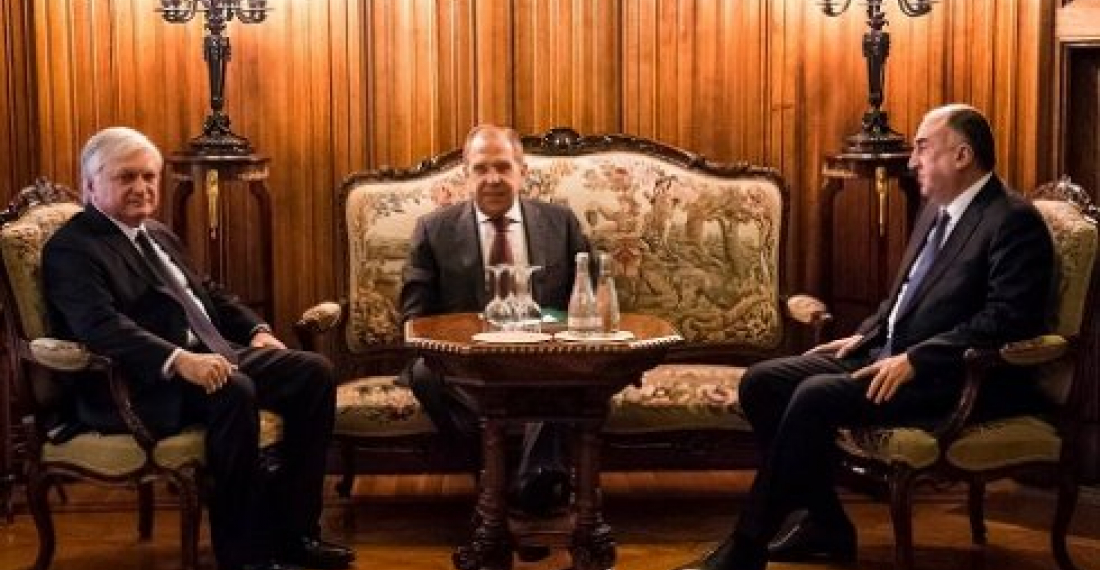The Foreign Ministers of Armenia and Azerbaijan have both made short comments on the current state of negotiations on the settlement of the Karabakh conflict. The comments were the first since the two Ministers met the Foreign Minister of Russia, Sergei Lavrov, in Moscow on 28 April 2017.
News.am quoted Armenian Foreign Minitser Eduard Nalbandian as saying that "Azerbaijan is making provocations, but there is still no alternative to talks". The Minister confirmed that the co-Chairmen of the OSCE Minsk Process were likely to visit the region in a few weeks time, and that a meeting between Armenian and Azerbaijani representatives could follow after that.
On his part, the Foreign Minister of Azerbaijan, Elmar Mammadyarov, stated that a meeting between the foreign ministers of the two countries was "possible in principle". "After the Moscow meeting of Foreign Ministers of three countries I had such an impression that peace in return of withdrawal of troops or land for peace is possible. It constitutes the logic of negotiation process for the last 12 years. However, in diplomacy negotiations for the sake of negotiations do not exist. It is clear to everyone that the armed forces of Armenia have to be withdrawn from the occupied territories of Azerbaijan", APA news agency quoted the Minister as saying.
In the meantime cease fire violations continued overnight with both sides accusing the other of breaking the cease fire first. The Armenian Defence Minister told Armenian media on Sunday that the previous night had been tense on the line of contact, and accused the Azerbaijani side of using heavy weaponary, but that the situation was under control.
source: commonspace.eu with agencies
photo: The Foreign Ministers of Armenia, Azerbaijan and Russia at their meeting in Moscow on 28 April 2017 (picture courtesy of the press service of the Foreign Ministry of the Russian Federation.)







